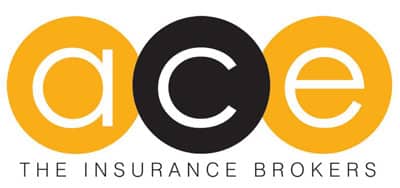
Office Insurance
Compare Office Insurance Quotes
- Complete one short form
- Quickly compare quotes
- Find a great deal today

Compare insurance quotes from the UK’s leading office insurers including;
Why Compare Office Insurance Quotes At SimplyQuote.co.uk
Comparing office insurance at simplyquote.co.uk lets you find tailored protection for your workspace—fast.
Whether you lease a shared office or own an entire building, we help match you with insurers who understand exactly what you need.
Powered by our trusted partner Quotezone, the comparison tool connects you to FCA-regulated providers offering cover for everything from contents and equipment to liability and business interruption. Instead of sifting through policies that aren’t relevant to office-based businesses, you’ll get options built for your setup—whether you’re running a digital agency, a law firm, or an accountancy practice.
You complete one short form, and we handle the rest—showing you a range of quotes that meet your requirements and budget. It saves time, avoids confusion, and ensures you get a policy that makes sense for your working environment.
And with the right cover in place, you can focus on your team, your clients, and your day-to-day—with less risk hanging over your head.
What Do I Need To Get A Quote?
To get an office insurance quote, you’ll need basic information about your premises, your business activities, and the value of what you’re insuring.
Most of it can be gathered in five minutes. Here’s what you’ll typically be asked for:
- Your business address and postcode – So insurers can assess location-based risk, such as flood zones or crime rates.
- Nature of your business – Whether you’re a consultancy, marketing agency, recruitment firm, or financial service provider, this helps shape the cover options.
- Building and contents value – This includes IT equipment, office furniture, stock (if applicable), and improvements you’ve made to the space.
- Security features – Information on alarm systems, locks, shutters, and access control may help reduce premiums.
- Employee count – If you’re insuring liability for staff, insurers will want to know the size of your team.
You won’t need to submit documents at this stage—just accurate information. Once the quote is accepted, your policy documents are usually sent out instantly by email, ready to activate your cover and protect your office.
Why Do I Need Office Insurance Cover?
Office insurance protects your business from financial loss if your premises, equipment, or staff are affected by theft, damage, or legal claims.
Without it, a single incident could lead to downtime, lost income, or even permanent closure.
Even in low-risk industries, things go wrong. A burst pipe could destroy laptops and paperwork. A fire might make your office unusable for weeks. Or a client visiting the premises could suffer an injury and make a claim against you.
If you employ staff, have customers on site, or store valuable equipment, office insurance isn’t just a good idea—it’s a safety net. Policies can cover everything from rebuilding costs to legal fees, business interruption, and liability claims. Without that cover, you could end up paying out of pocket.
It’s not just about the big disasters either. Smaller events—like a break-in, vandalism, or even a power surge damaging your tech—can disrupt your work and hurt your bottom line. The right commercial property insurance helps you absorb those shocks and get back to business fast.

What Types Of Businesses & Offices Are Covered?
Office insurance is suitable for any business operating from an office-based environment—whether you own the building, lease a unit, or rent a co-working space.
Policies are flexible and can be tailored to suit different industries, sizes, and risk profiles.
Common businesses that take out office insurance include:
- Professional services – Solicitors, accountants, estate agents, architects
- Tech and digital firms – Startups, developers, agencies, software providers
- Consultancies – HR, finance, marketing, or management consultancies
- Recruitment agencies – Especially those with walk-in traffic or client meetings on-site
- Non-profits and charities – With administrative offices or public interaction
Some insurers also cover home-based offices and shared workspaces, provided you accurately describe the premises and declare any third-party interactions.
The key factor isn’t the job title—it’s the environment. If you’ve got a physical office where people work, meet, and operate systems or equipment, then office insurance can help protect what keeps your business running.
What Does Office Insurance Cover Include?
A typical office insurance policy includes cover for your building, contents, IT equipment, and public or employer liability—protecting you against damage, loss, or claims that could disrupt your business.
It’s designed to safeguard the core elements that keep your operations running. Here’s what’s commonly included:
- Buildings insurance – If you own the premises, this covers damage from fire, flooding, storms, or vandalism.
- Contents insurance – Covers desks, chairs, computers, servers, and other physical items in your workspace.
- Business equipment cover – Additional protection for laptops, tablets, specialist machinery, or portable electronics.
- Public liability insurance – Protects you if a client, visitor, or third party is injured on your premises.
- Employers’ liability insurance – Legally required if you have staff. Covers injury or illness claims from employees.
- Business interruption cover – Helps cover loss of income if you can’t trade due to an insured event (e.g. fire or major damage).
Most insurers will let you tailor your policy based on what matters most. For example, if your office holds sensitive client documents or high-spec hardware, those can be covered under specific add-ons or declared higher limits.

Can I Get Cover For Staff, Clients, & Equipment?
Yes—most office insurance policies can be tailored to protect your employees, clients, and the equipment your business relies on.
These elements often carry the biggest risks, so it makes sense they’re central to your cover.
If you employ staff, employers’ liability insurance is a legal requirement in the UK. It protects your business if an employee becomes ill or injured due to work—whether it’s a trip hazard in the office or RSI from poorly set-up desks.
For clients or visitors, public liability insurance covers you if someone is injured or their property is damaged while on your premises. It’s not mandatory, but if you have people coming in and out, it’s highly recommended.
And then there’s equipment. Most policies will allow you to cover everything from desktop computers and monitors to printers, servers, and portable devices. If your business depends on specific tech or tools, you can often list high-value items individually to ensure they’re properly insured.
Ultimately, a good policy doesn’t just protect the building—it protects the people inside it and the things that keep your business moving.
What’s Not Included?
Office insurance doesn’t cover every scenario—especially if the risk isn’t declared, the item isn’t specified, or the damage falls outside the scope of the policy.
Knowing what’s not included can be just as important as knowing what is. Here are some common exclusions:
- Wear and tear – Gradual damage to furniture, flooring, or equipment isn’t covered. Insurance deals with the unexpected, not maintenance.
- Undisclosed high-value items – If you don’t declare expensive electronics or specialist equipment separately, they may not be fully insured.
- Cyber attacks or data breaches – These typically require separate cyber insurance, even if you store sensitive information digitally.
- Negligence or improper use – Damage caused by staff misuse or failure to secure the premises might lead to a denied claim.
- Unoccupied offices – If your premises are vacant for a prolonged period, certain protections may lapse unless your insurer is informed.
Not every policy is identical, but these exclusions are fairly standard. If your business relies on niche tools, data-heavy processes, or has unique risks, always check the fine print or speak to a broker before assuming you’re fully protected.
How Much Does Office Insurance Cost?
Office insurance typically costs between £100 and £500 per year, depending on the size of your premises, the nature of your business, and the level of cover you need.
No two quotes are the same, because no two offices are. Here’s what usually affects the cost:
- Size and location of the premises – A city-centre office with high footfall may carry more risk than a quiet unit in a business park.
- Type of business you run – A consultancy or accountancy firm may be cheaper to insure than a business handling hazardous materials or cash.
- Value of equipment and contents – If you have high-spec computers, servers, or specialist kit, your premium will reflect the cost to replace it.
- Claims history – Previous insurance claims—especially for theft, fire, or liability—can push your price up.
- Level of cover and add-ons – Including extras like business interruption or cyber cover will increase the premium but also broaden protection.
Many small and medium-sized businesses fall into the lower end of the price range, especially when they compare quotes and tailor their policy to what they actually need.
Office insurance doesn’t have to be expensive—it just has to be the right fit.

How Can I Save Money On Office Insurance?
You can reduce the cost of office insurance by comparing quotes, accurately valuing your assets, and avoiding unnecessary cover.
A well-tailored policy protects your business without overcharging you for things you don’t need.
Here’s what helps keep costs down:
Compare policies
Every insurer calculates risk differently. Using a tool like SimplyQuote via Quotezone lets you view multiple options in one go.
Only pay for what you need
Don’t over insure. If you work from a small, low-risk office, you may not need extensive extras like stock insurance or accidental damage.
Improve your security
Offices with CCTV, alarm systems, and secure locks may benefit from lower premiums.
Bundle your cover
Some insurers offer discounts if you combine multiple products—like public liability and contents—in one policy.
Keep your claims history clean
Smaller claims can impact your record and bump up future premiums. If the loss is minor, sometimes it’s cheaper to cover it yourself.
Ultimately, the key is transparency. The more accurate your quote inputs, the more competitive and relevant your policy will be. And by shopping smart, you can get comprehensive protection that works for your office—without overpaying for it.
How To Compare Office Insurance Quotes At SimplyQuote.co.uk
You can compare quotes for office insurance in minutes using our smart form, powered by Quotezone.
One application gives you access to FCA-regulated insurers offering tailored protection for office-based businesses.
Here’s how it works:
- Start with your business details – You’ll enter your business type, address, and a few quick questions about the size of your team and the value of your equipment.
- Tailor your cover – Select what you want to include—whether that’s just liability and contents, or extras like business interruption and buildings insurance.
- See quotes instantly – Within seconds, you’ll be shown a panel of offers from UK insurers who specialise in commercial property and office risks.
- Review and apply – Choose the one that fits your needs, and your documents will usually be emailed to you immediately after purchase.
You won’t be pushed to buy, and you won’t be shown irrelevant policies meant for shops, cafés, or construction sites. Every quote is based on the needs of office-based professionals—so you can compare with confidence, and get back to business.
Frequently Asked Questions
Only employers’ liability insurance is legally required if you have staff. Other types of office insurance—like contents or public liability—are optional but strongly recommended.
It can, but you’ll need to inform your insurer. Some policies can extend limited cover to home-based employees, especially for business-owned laptops and equipment.
Yes. You don’t need to own the building—most tenants insure their contents, liability, and business interruption while the landlord insures the structure.
Not usually. Cyber risks like data breaches or hacking are excluded from standard office policies. You’ll need a separate cyber insurance policy.
You could receive a reduced payout if you claim. Always declare an accurate replacement value for equipment and furniture to avoid being penalised.
Yes, but you may incur a cancellation fee. Some insurers also let you transfer the policy to your new premises, depending on location and risk level.
Yes, though you must describe the setup accurately when applying. Some insurers offer cover for desks, equipment, and liability within shared workspaces.
You should have public liability cover. It protects your business if a client is injured or their property is damaged while on your premises.
Written by Chris Richards
Page last reviewed on 26th March 2025 by Chris Richards


